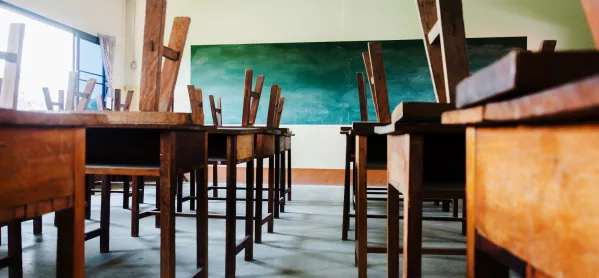
Coronavirus: 5 staff wellbeing tips for closed schools

Following news of a Corona outbreak in Hubei province, classes in Hong Kong were suspended from the start of February as a precautionary measure.
Since then, school teams have worked hard to learn fast, with communities now engaging almost exclusively online.
The immediate risk to health presented by Covid-19 has been extremely well documented, the impact upon wider wellbeing connected to decreased social interaction, far less so.
Fear and anxiety are contagious, so here are some tips on maintaining good wellbeing.
1. Empathy is key
With the media circus on full parade, the responses of those around us have often been heightened, shaped exclusively by personal circumstance.
With movement across the region restricted, many parents in Hong Kong face immense personal pressure while they attempt to juggle work and school from home.
This is a particularly intense undertaking here in Hong Kong, where the average size of an apartment is just shy of 650 sq ft.
As teachers, we need to understand these constraints, and be sympathetic and flexible to parent needs.
2. Keep communication measured
I was once advised to move more slowly in times of crisis. Steady and conscious movement (both physical and emotional) provides space to engage.
With personal contact highly limited, written messages are easily misconstrued. As such, we have learned to measure our words with care, drawing upon an extended network for guidance.
Those fronting communication will need support. A trusted campus-based response team has served us well, supporting consistency and the conscious generation of calm and positive messages.
3. Consider high-risk groups
While the suspension of usual school services will have a considerable impact on every member of your community, some will be disproportionately disadvantaged.
School leaders must consider the unique pressures placed upon key student groups - some will face disruption to their examination schedule, others will miss out on their usual level of academic support. What happens to students identified within your safeguarding register?
Parents and staff will face their own unique set of challenges, too. All will need your time and attention. Early identification will support the prioritisation of care, services and support.
4. Stay connected
While many schools here opted to close their doors for the duration, we have remained open to staff throughout. It was a critical decision but the opportunity to connect regularly with colleagues has proven to be a powerful antidote to rising claustrophobia.
The preparation of online learning materials is immensely time consuming. The application of flexible working routines has been complemented by fixed periods of attendance designed to reconnect and reinvigorate staff teams as they work to perpetually innovate online.
5. Manage digital fatigue
The novelty of online learning will fade fast (it lasted for about three days, here) so pace yourself.
While most schools are likely to subscribe to a digital learning platform of one form or another, very few will have considered the broader functionality required to support a full school day (or week, or term). With a huge variety available, often at negligible cost, prioritise intuitive access and secure control.
Timeline the steady introduction of new initiatives. Not only will this allow you to periodically reinvigorate the experiences of students but to support staff ahead of eventual delivery. Calls for continued innovation are more comfortably moderated when you have ideas in the bank.
Variety has driven greatest success: pre-recorded content is particularly effective for anyone who might benefit from repetition, individual pastoral calls allow us to retain a good measure of wider wellbeing and interactive tasks can support learning-focused connection.
Live broadcast has its place, too, but remains relatively one dimensional - interaction (and inadvertent interruption) is almost impossible to manage.
Silver linings
While very few of us would have volunteered for the undertaking, the period of suspension will act, no doubt, to galvanise our community. Conscious and public recognition of the residual advantages will only act to support the journey.
- Invention has been inspired by perceptions of constraint.
- Online engagements have up-skilled all members of the school community.
- Parental feedback has been shaped by an increasingly nuanced understanding of the work undertaken by the academic team.
Challenging times often bring a community together. The period of extended suspension in Hong Kong has been as invigorating as it has been exhausting - when the dust settles, we will emerge stronger and more united. Only the silver linings will remain.
Ben Keeling is principal at Shrewsbury International School, Hong Kong
You need a Tes subscription to read this article
Subscribe now to read this article and get other subscriber-only content:
- Unlimited access to all Tes magazine content
- Exclusive subscriber-only stories
- Award-winning email newsletters
- Unlimited access to all Tes magazine content
- Exclusive subscriber-only stories
- Award-winning email newsletters
You need a subscription to read this article
Subscribe now to read this article and get other subscriber-only content, including:
- Unlimited access to all Tes magazine content
- Exclusive subscriber-only stories
- Award-winning email newsletters
- Unlimited access to all Tes magazine content
- Exclusive subscriber-only stories
- Award-winning email newsletters

